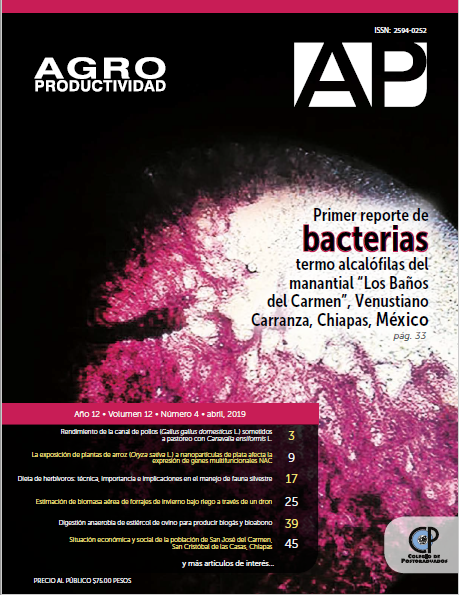Economic and social situation of the population of San Jose del Carmen, San Cristobal de las Casas, Chiapas, Mexico
Main Article Content
Keywords
Poverty, production, income, marketing.
Abstract
Objective: To establish a baseline as a basis for the intervention of innovations through field schools and business plans.
Design / methodology / approach: The study was developed in San Jose del Carmen, San Cristobal de Las Casas, Chiapas. A survey was developed as an instrument to collect in the field information from local families in order to know their current situation. The locality of work was chosen using as criteria the populations that are within the National Crusade against hunger and in the classification of extreme poverty
Results: The locality of San José del Carmen is considered as highly marginalized, the population is bilingual, its main language is the Tzotzil, the average level of studies is up to the third year of primary school, the main productive activities are the planting of corn (Zea mays L.), beans (Phaseolus vulgaris L.), potatoes (Solanum tuberosum L.) and beans (Vicia faba L.) that are used mainly for self-consumption. They do not have potable water since their system is through the collection of rainwater or through a jagüey. Its main economic activities are the masonry by men and the sale of products such as: "pozol" (energy drink based on corn and cocoa (Theobroma cacao L.), toast and some vegetables for part Women's. The toasts are produced in a traditional way with a process of double nixtamalization and sold in bags of 20 toast each, at a cost of MX$ 10.00 in the markets of San Cristóbal de las Casas from one to two times per week around 40 bags per day of sale.
Limitations of the study / implications: The Zapatista affiliation of some of the inhabitants and the fact that some inhabitants do not speak Spanish, were factors that limited the 100% development of the study, however, it is considered that they have the necessary elements to establish the baseline of the situation of San José del Carmen.
Conclusions: The diagnosis will serve as a tool to establish an intervention through innovations and business plans in the community under study. Villagers have the necessary tools to obtain new knowledge that helps their production development. The language should not be a limitation for it.

